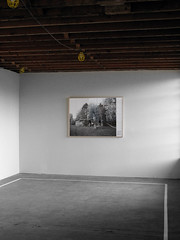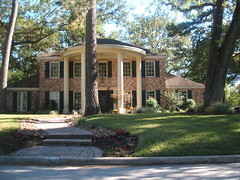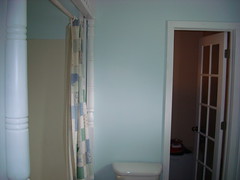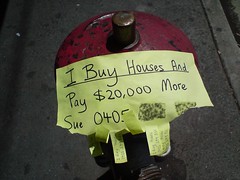Is it a Good Time to Buy a House?
It’s a constant question now in the real estate market: Is it a good time to buy a house? Of course it is difficult to answer in an article since you may be reading this years after it is written, when conditions have changed. But whenever you find this article, the following three crucial factors are what you’ll want to look at to answer the question for yourself.
Home Values
At the moment, the first thing most people are wondering when they ask if it’s a good time to buy a house, is whether prices have finally stopped falling. Since a home is seen as an investment of sorts, we all like the idea of buying when values are rising. I am writing this in early 2009, and no, home values not only are not rising in most areas, but they don’t seem to have stopped falling.
We just bought a home anyhow, and there are several reasons why we felt comfortable doing so. The first is that prices don’t seem to be falling much in our area (Canon City, Colorado). Apart from the various foreclosures that are dragging prices down a bit, the market here is much more stable than in other parts of the country. A stable job base and the fact that prices never rose too far too fast during the “boom times” helps.
The real estate market does not act the same everywhere in the country. So to see if a bottom is near or if prices are rising, pay close attention to what is happening where you are. On the other hand, we did not buy counting on rising prices, because that is not the only determining factor. In fact, it is possible that the problems in the country will get worse and drive prices down 10% or 15% even here. So what else made us decide that for us it was a good time to buy a house?
Interest Rates
At the moment you can get fixed rate 30-year mortgage loans at about the lowest interest rate in your lifetime (no matter how old you are). Our own rate is 4.5%. That’s not a variable or “teaser rate.” It is fixed for the thirty years of the loan.
Let’s look at why this matters so much – as long as you plan to stay in the house for a while, as we do. Suppose you pass on a house that is selling for 0,000 and waited a couple years while prices fall another 10%. But suppose that at that time interest rates were up around 7.5%. You buy the house for 0,000. The payment (assuming you have a 10% down payment and borrow 2,000) is ,132 each month for principal and interest.
But what if you had bought at 0,000 and put 10% down? Then your payment on the 0,000 loan would have been 2. That’s right, you would be paying 0 more each month if you waited and bought at the lower price. That amounts to ,200 more that you would pay over the thirty years if you stayed in the house that long (,200 more in payments, but you saved ,000 on the down payment). This demonstrates the importance of the interest rate in determining your true cost.
Personal Situation
Is it a good time to buy a house, then? That depends not only on prices and their direction, and not just on interest rates, but on where you are financially. How secure is your income? If you lost your job, could you make the house payments for six months while you looked for another? Can you count on finding another job that will provide enough income to pay for the house? Are you going to be staying in the area long enough to justify buying (renting can often make more sense if you will be moving within a few years)? These are the more difficult questions to answer, but perhaps the most important in determining if it is a good time for YOU to buy a house.
First Time Home Buyer Programs
Copyright Steve Gillman. For more on whether this is a good time to Buy a House, and for a free real estate investing course and ebook on how to buy cheap homes, visit: http://www.HousesUnderFiftyThousand.com
If you are thinking of selling your home, The Guardian Realty Center produces high definition video to sell your home fast on the internet. If you are thinking of buying a home you must remember the home is only a small portion of your decision . It is important to remember you are also buying a neighborhood and a school district. …We have other town videos running for your convenience…Call us if you would like to go out and see homes in Putnam Valley. The Guardian Realty Center is located at 160 Bryant Pond Rd, Mahopac NY…Call us at 845-661-1339 or visit the website: www.guardianrc.com
First Time Home Buyer Programs
Video Rating: 0 / 5





